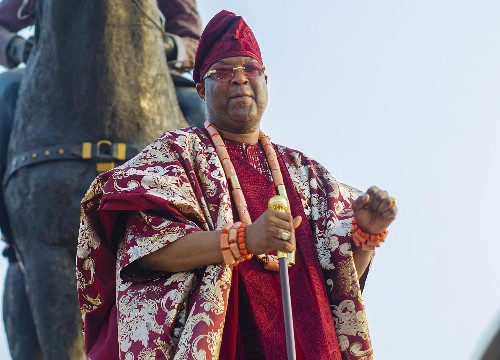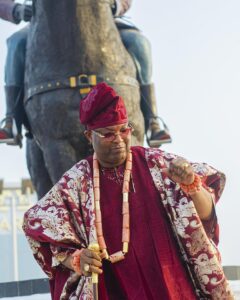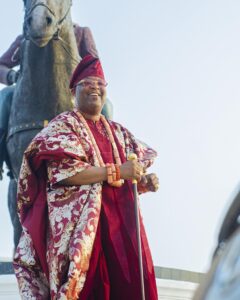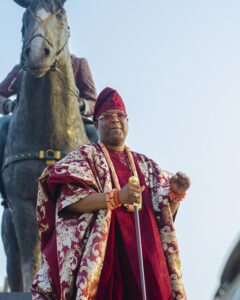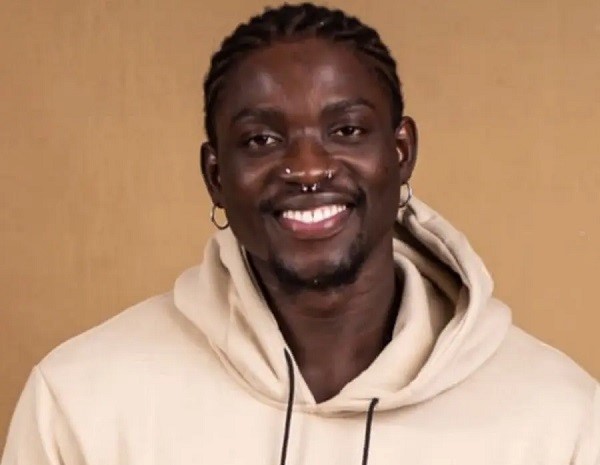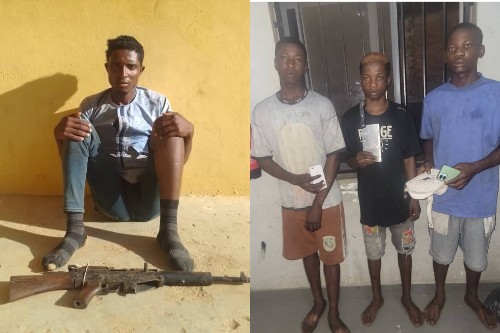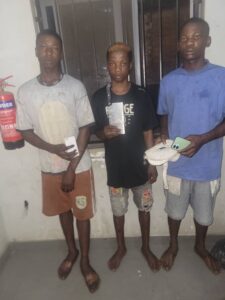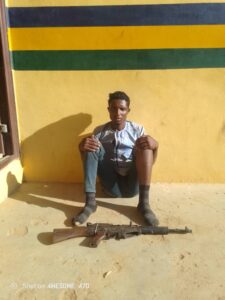Kwara State Governor, Abdulfatah Ahmed, has refuted claims that he has been pocketed by the President of the Senate, Dr. Bukola Saraki. He also explained how he was able to increase Kwara State Internally generated revenue from N7bn to about N17bn annually which has since made it easy for his administration to pay workers salaries as at when due.
The soft spoken governor, in a recent interview with PUNCH Newspaper said ‘So, the issue of pocketing or not pocketing; it’s not a private business, it’s not Abdulfatah Nigeria Limited, it’s the business of Kwara and Kwarans have been input providers in getting us to the current level”.
Full Excerpts of the interview below:
Kwara is one of the few states that have been able to pay salaries regularly. How have you been able to do this?
The financial challenges started kicking in and around 2013, 2014. The first thing we did was to look internally. We reviewed our revenue generating strategies, we changed the people, we changed our processes and engaged technology and this saw the movement of our revenues from an annual accrual of about N7bn to about N17bn. That automatically created some level of headroom to carry out recurrent and capital expenditure, hence, our ability to support salary payment and carry out some of the projects we’ve been able to carry out.
How do you think the herders/farmers clashes can be solved?
The current situation in the country is saddening. I think it requires a holistic approach given the fact that the cattle rearing business is part of the national economy which must be given its proper place to truly enable it to contribute to the economy. The current rate at which cattle rearing is done needs to be reviewed and seen in the context of today’s reality because the size of land available is different from what used to be available. If you look at the whole issue of clashes between the herdsmen and farmers, it’s about land use; it’s about being able to appropriately use land to create wealth. There are better ways by which this can be done through dialogue, through looking at the working models in different environments, domesticating them and improving advocacy on peaceful co-existence. In Kwara State, we’ve approached the issue of farmers/herdsmen clashes through dialogue and understanding which have since led to peaceful co-existence and have allowed for areas of infractions to come with compensation. It’s mutually agreed that when farms are trampled on or destroyed, they come with compensation and this has been adhered to by the various associations of cattle breeders which has also created a much more peaceful environment. Of course, there are skirmishes here and there, it is not unexpected but not to the scale that will require the deployment of security forces. It’s still at levels where it can be mutually sorted out. So far, our mode of approach has been through dialogue and inclusive agreements between the cattle rearers and farmers on what should be done at what time and defining areas of the use at a point in time and so far, we are happy with what we have on the ground.
What is your take on the proposed cattle colonies?
I think we should look at what is going to work for us as a country. We must realise that the cattle herders in the light of the services they render to the country’s economy, we need to have a very responsive agriculture ministry which must pursue policies that will ensure everybody is carried along. I am sure by the time we are able to sit and look at practices that are carried out in other parts of the world, we would be able to domesticate something that will suit our interest and will suit our peculiarities. One thing is clear, the way and manner we used to do it in the past, is no longer possible because the space is getting smaller, the population is growing and we require optimal land use in such a way and manner that we will begin to reap the benefit. First things first, domesticate what is done in different parts of the world and begin to see how to truly skew our people through advocacy and other methods that will make them find the new methods attractive and move on to the new level.
The relationship between you and your predecessor, Senator Bukola Saraki, who is the current Senate President, seems cordial. Is it that he has pocketed you?
I was part and parcel of the administration (of Bukola Saraki) when he was here as governor. I was part and parcel of the economic team. I was part and parcel of the planning team and I was part and parcel of articulating the programme that would see the development of Kwara from point A to point B, employing all available resources. So, it was only natural that when I was coming on board, it would be foolhardy for me to say I want to run the state without getting input from him or others who have input to give because governance is about taking ideas from people. You must be able to listen to constructive criticism and use that as the basis to change things from the way they are if they are not in the way they should be. By and large, we have been working based on campaign promises, based on input from all those who can support us. We even give room for opposition who come with constructive criticism. So, the issue of pocketing or not pocketing; it’s not a private business, it’s not Abdulfatah Nigeria Limited, it’s the business of Kwara and Kwarans have been input providers in getting us to the current level. I have had town hall meetings across the state. For him, he can only serve as a guide to us because whether we like it or not, he’s had that experience. Whoever is coming in tomorrow as governor, will necessarily listen to me if he truly wants to see some things achieved because I’ve gone through this experience and there is no substitute for experience.
Your party, the APC, came on board based on a promise of change. From what is currently happening, would you say your party has done so well that it deserves a second term especially at the centre?
You and I are not unfamiliar with the fact that there was a major shift from the PDP to the APC, and truly the APC came with a lot of expectations. However, the attendant programmes that have come in as the APC government was being ushered in, especially the issue of the price of crude oil that dropped; we saw how the economy began to move southwards. This naturally created a different starting point for the APC and in trying to gauge what the APC has done so far, from a modest perspective, I think it has done well because it had so many facets to tackle. You have one of the facets of ensuring that our institutions are working, ensuring that resources are available to drive programmes, there is a huge deficit of infrastructure especially in energy and roads which are very critical to development and growth. By and large, getting to create platforms that would drive states to the right platform to allow governance to go on was quite herculean. I would say that modestly, the APC government has achieved and it requires sometimes building on what it has achieved as platforms to give the desired impact that would truly change what people’s expectations are.
Do you think governors should be monitored on how they spend bailout funds from the Federal Government?
Let us recognise the fact that the Paris Club money is a refund to states. Their monies were taken in the past and it’s being returned to them. For us in this state, we had expectations on how to use these funds and we keyed it into our budgeting system and it wasn’t like some free money dropping from heaven that didn’t have where it was coming from or where it was going to. It’s money that has been anticipated and has been encapsulated in the budget as part of the funding to go into all programmes that were captured in both capital and recurrent in our 2017 budget. Do you need to monitor people on how they execute their programmes? It is our money. If I lend you money today and you pay back, would I tell you how to spend the money? I can only give advice because when you came to me asking for the money in the first place, you were shouting that you had projects and programmes to run. So naturally, when I am giving out that money if you came to me and said, ‘Look, I need to marry a new wife, I need some money,’ when I give you that money, I remind you to say don’t forget you said you are going to marry a new wife. So that was the situation.
But the President said you should use it to pay salaries.
He was just being suggestive because this was the pressure that was put on him by governors in making request for their refund. He was also advising that ‘since some of you claim you need the money to pay salaries, this is the money, just pay the salaries so that workers will be happy.’ It is not that he is compelling governors on what to do with the money. For some of us, it’s been put in our budgets and it’s designed to fund our normal budgeting system.
There are some misgivings among APC leaders and there are indications that some may move back to the PDP. If that happens in Kwara, what is likely going to be the decision?
It is an unlikely scenario here in Kwara. Don’t forget that because we run an inclusive process, it’s not about the leadership, it’s about the following and the following defines the direction they want us to go in because the followers’ decision is based largely on what their expectations are. If they insist that they want us to remain, we remain; if they want us to go, we go, and it will be based on their inputs. Don’t forget, it’s an inclusive house, which allows for decision-making to be done inclusively and has since informed the way and manner decisions are taken. When we were in the PDP and had to move to the APC, it was an inclusively designed programme and it’s not like you are herding cattle and just move on and direct them to move to a particular direction; no, it’s inclusively done. Inputs are taken from ward level on why changes need to happen at that time but as it is today, we are comfortable where we are and we’ve not seen the basis for moving out from where we are today.
There are speculations that the PDP is talking to you. Is the PDP talking to you?
As speculative as it is to you, so it is to me.
Punch

 BIG STORY3 days ago
BIG STORY3 days ago
 BIG STORY3 days ago
BIG STORY3 days ago
 BIG STORY3 days ago
BIG STORY3 days ago
 BIG STORY2 days ago
BIG STORY2 days ago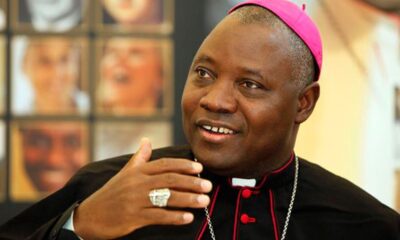
 BIG STORY5 days ago
BIG STORY5 days ago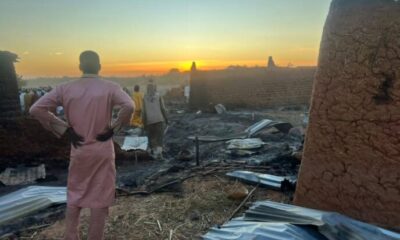
 BIG STORY3 days ago
BIG STORY3 days ago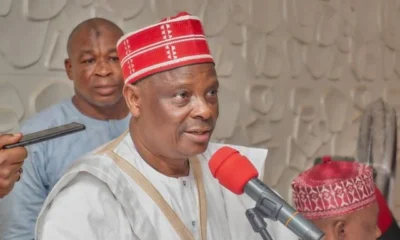
 BIG STORY3 days ago
BIG STORY3 days ago
 BIG STORY1 day ago
BIG STORY1 day ago


















